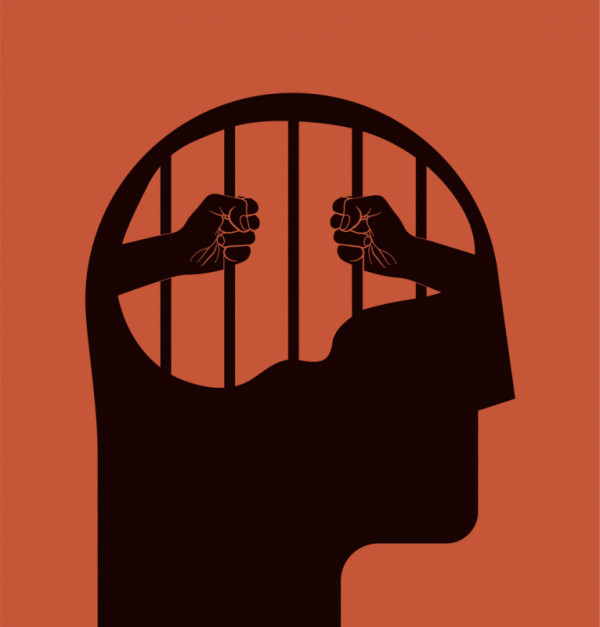
University of Bolton, Deane Road, Bolton. BL3 5AB
Tel:
Email:


“At the University of Bolton, we take great pride in providing a quality, supportive learning environment for our students.”
Professor George E Holmes DL | President & Vice Chancellor
“...tutors are very supportive and you’re not just a student ID number, at this university you are an individual with a name.”
Ellisse Vernon | BSc (Hons) Adult Nursing
Back to menu
Back to menu
Study with an Off-Campus Partner
Back to menu
Back to menu
University of Bolton, why we are the right choice
Location - Bolton, Greater Manchester

03/03/2023
With one in four UK adults suffering from mental health issues, there’s no doubt about its major impact in society; and one sector where mental health often falls under the radar is the criminal justice system. From both a victim and prisoners' perspective, depression and anxiety are no stranger, with over 26% of crime victims and 90% of prisoners reporting to suffer from mental health issues.
This blog explores the effect of mental health in the criminal justice system and how a BA (Hons) Crime and Criminal Justice degree can help you make a positive difference.
The Criminal Justice System is Failing Those with Mental Health
In an industry where thousands of people with mental health issues are coming into the criminal justice system each year, you might be surprised to hear that their needs are being missed. In fact, this is the case at almost every stage of the process due to a lack of progress over the last 12 years. If you’re wondering how the criminal justice system is failing those with mental health issues:
- There is a broken system for sharing information between agencies, with confusion over data protection rules and incomplete or inaccurate records
- Service shortage and long delays to access records; something which was made worse by the Covid-19 pandemic
- Long delays in psychiatric reports for court cases and in transferring unwell prisoners to secure mental health hospital beds for treatment

Mental Health in Prisons
Now, you might be wondering how mental health among prisoners can reach as high as 90%? Research states that the most common cause of mental health in prisoners is caused by the exposure to violence and the emotional distress it creates. The effect of this doesn’t just apply while the prisoner is behind bars, either. The impact of witnessing such violence can also have a severe impact on the individual's psychological wellbeing once released. This is because those exposed to greater acts of violence are the ones who often find it more difficult to settle back into the community; so subsequently being the prisoners who are more likely to end up back in prison.
It’s also important to consider that some criminals could be diagnosed with Antisocial Personality Disorder (ASPD); which is also the most common illness for prisoners. This is a challenging type of personality disorder that is characterised by impulsive, irresponsible, and often criminal behaviour. Someone with ASPD can be manipulative, deceitful and reckless, and has a disregard for other people’s feelings. However, there is controversy as to whether ASPD constitutes as a legit mental illness, as many refer to it as a moral judgment that is given a diagnostic label.
Mental Health for Crime Victims
With only 26.4% of victims claiming to suffer from mental health problems, this is something that you might expect to be higher. However, considering only 17% of non-crime victims report to experience mental health issues, this highlights the importance of supporting victims. One thing that is important to consider is that although the short-term effects of mental health can be severe, many don’t experience long-term effects. The most common illness associated with victim’s mental health is often Post-Traumatic Stress Disorder (PTSD).
Study a Crime and Criminal Justice Degree
Want to help an industry that needs caring individuals who are committed to reversing the mental health curve in the criminal justice system? The BA (Hons) Crime and Criminal Justice course at the University of Bolton could be your ideal way of being part of the solution. On a course that is designed to support future criminal justice professionals, our industry-experienced lecturers can give you the understanding of the causes of crime, criminal behaviour, and how to combat crime.
The criminal justice sector offers several challenging yet rewarding careers, so by studying in our positive and supportive learning environment, we will support your career ambitions by teaching you the skills you need to succeed. Our students love the university experience we provide:
“Staff were going out of their way to guide me and make sure I understood how everything functioned. I wanted to familiarise myself with the facilities, so I asked for student ambassadors to take me round. They were very happy to do so, which gave me a great boost of confidence...”
- Aisha Mirza / Crime and Criminal Justice Student
Bolton School of Law students also gain access to facilities including our Sony Suite which provides a collaborative study environment for group work, our dedicated Law library, and guest lectures from visiting professionals; giving students up-to-date teaching that reflects the latest industry practices.
If the University of Bolton sounds like the right place to help you become a great police officer or crime scene investigator, then click here to view the full course details and learn how you can start your #UniAsItShouldBe journey.
For more information, please contact us at enquiries@bolton.ac.uk or call us on 01204 903903.